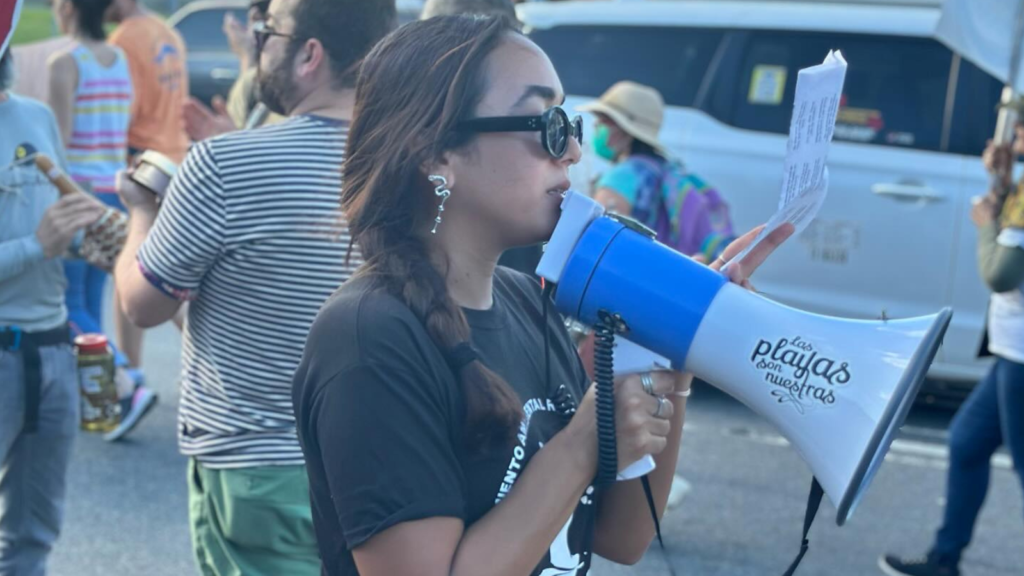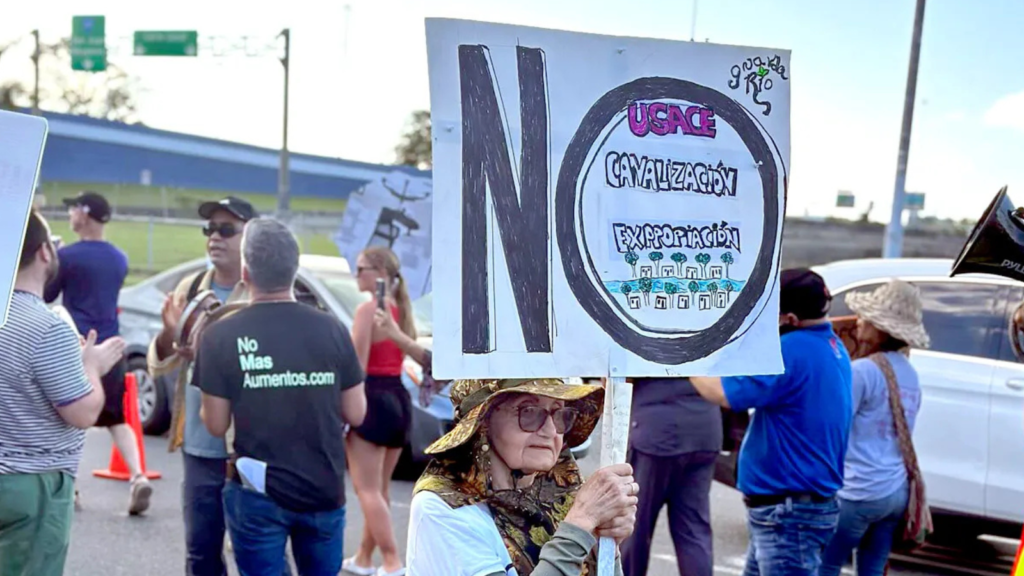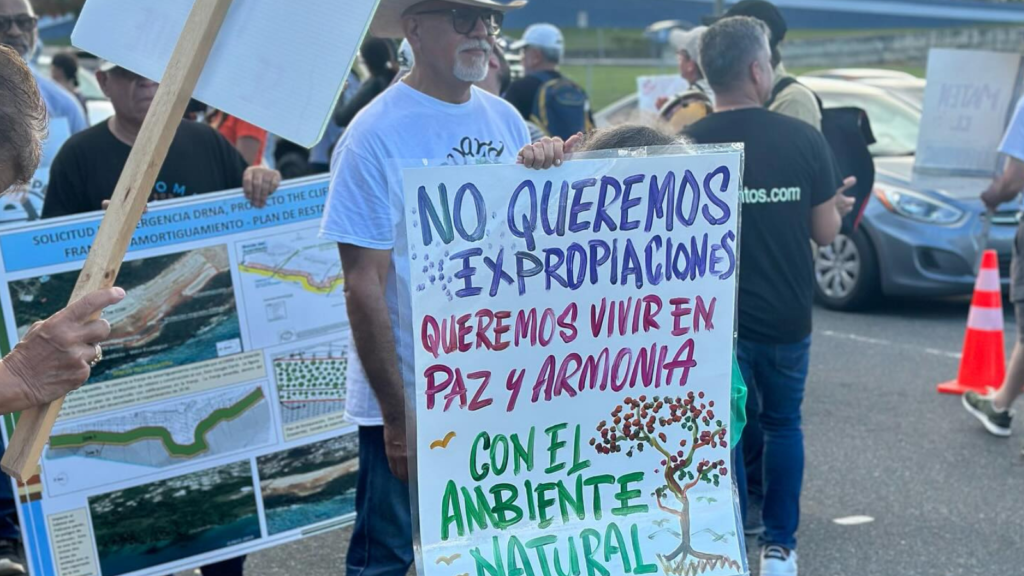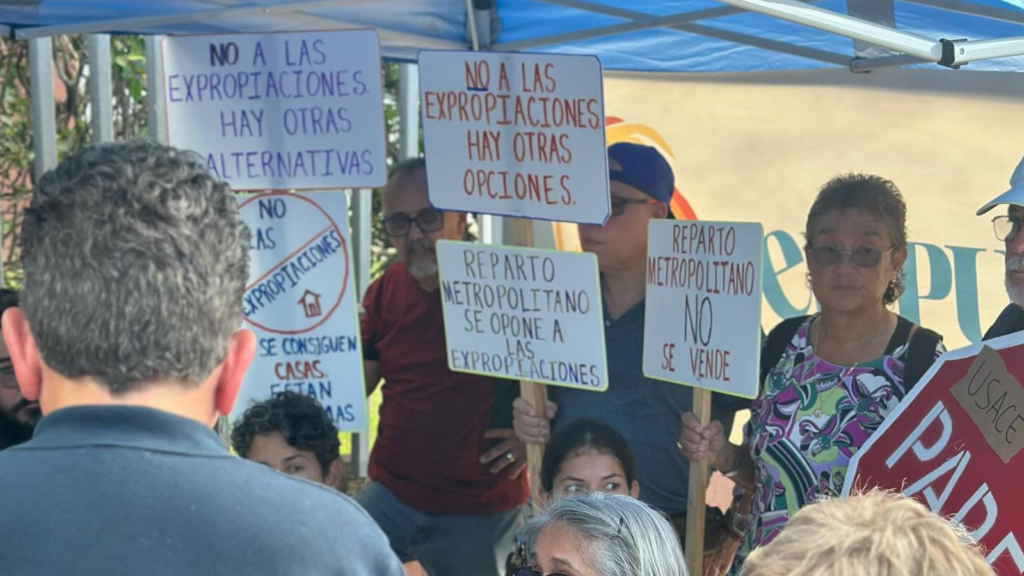Environmental groups in the United States territory of Puerto Rico are focusing on citizen mobilisation and community efforts, expecting the next 4 years to be a time when the government won’t prioritise climate change.
This comes following Donald Trump’s overwhelming win in the November 5th election. President-elect Trump has often questioned the science behind climate change, rolled back environmental regulations, and called it a “hoax,” leading many to label him a climate change denier.
In the Caribbean archipelago of Puerto Rico, the New Progressive Party (PNP), a right-wing party, won the governorship and likely gained a majority in both the Senate and the House of Representatives. Meanwhile, in the United States, the Republican Party (GOP)—another right-wing party—took control by storm of all three branches of government. But neither party has proposed specific solutions to address the ongoing climate crisis, which has led to increased coastal erosion in Puerto Rico.

On the U.S. side, President-elect Trump and the GOP plan to eliminate tax benefits that were meant to increase renewable energy and electric vehicle use at the federal level, especially in under-represented communities. It’s also expected that Trump will cut funding to the Environmental Protection Agency (EPA), which is active in monitoring water and air quality on the island, and could claw back or make it harder to access recovery funds that have not been used yet by the Government of Puerto Rico eight years after Hurricane Maria. The Department of Housing and Urban Development Office of Inspector General made public in 2021 that the U.S. Office of Management and Budget delayed the disbursement of congressionally approved funds for the island´s recovery under Trump’s first term in the White House.
In Puerto Rico, the PNP’s platform under Governor-elect Jeniffer González Colón includes ideas like speeding up permits, which are required for commerce and development. However, it lacks targeted solutions for critical issues like coastal erosion and rising sea levels, such as curbing coastal development—a measure widely advocated by local experts.
Vanessa Uriarte Centeno, co-director of the environmental group Amigxs del Mar, said that the environment and the climate crisis were largely ignored during the election campaign. Incredibly, climate change wasn’t even brought up during the sole televised gubernatorial debate.
“There’s a general feeling that climate change and environment protection were left out of the political discussion before the elections,” Uriarte Centeno said.
Uriarte Centeno also noted that the governor-elect’s environmental views seem to align with those of President Trump, since both are members of the Republican Party. This means that advancing their agenda, which includes easing development rules, will likely be easier. For this reason, Uriarte believes the key to getting the government to act on climate change will be citizen mobilisation, with stronger collaboration between nonprofit groups and vulnerable communities.
“We’ve lost decades of progress overnight on these issues,” she said.

Rafael Méndez Tejeda, a climatologist and member of the Climate Change Expert and Advisory Committee (CEACC), recognised that voters were aware of both parties’ environmental platforms. However, he warned that the next four years will be crucial to addressing coastal erosion. The CEACC proposed measures to the current governor, Pedro Pierluisi Urrutia, to tackle erosion, such as a moratorium on coastal construction and banning development in areas at risk from rising sea levels. Unfortunately, these ideas were not executed.
The climatologist showed concern that these plans might not be implemented if the federal government cuts Puerto Rico’s funding, which supports programs that could help address these issues.
“The political situation in Puerto Rico is complicated because we are directly affected by U.S. federal policies,” he said.

In light of potential cuts to funds for federal environmental proposals—especially for coastal restoration—Héctor “Tito” Varela, the program manager for Surfrider Foundation in Puerto Rico, said they’ve been working to raise more money and donations to reduce their dependence on federal funds.
“We have an administrative structure that doesn’t depend on federal funds at all,” Varela explained.
In contrast with other environmental groups interviewed, Varela remains hopeful that the new governor will support environmental efforts, based on past discussions when González Colón was Puerto Rico’s resident commissioner. They also plan to meet with the new legislative leaders soon.
Surfrider has worked with governments across the political spectrum for four decades, so Varela hopes there will be room for dialogue with the environmental sector.
“Grassroots work is always going to be here,” he said. “We do what the government or private companies don´t do.”

The lack of concrete climate change policies in González Colón’s platform has pushed groups like Comunidad Guayamesa Unida por tu Salud to get more involved. Their spokesperson, Miriam Gallardo González, said they are looking for new members, especially since other issues, like converting power plants to gas, are also threats. This proposal was embraced by the elected governor during her campaign.
“It’s time to take action,” Gallardo González said.
The environmental activist mentioned that the absence of environmental policies gives companies too much power to do as they please.
Gallardo González noted that many community groups across Puerto Rico are organising to address the current political situation. She’s seen growing interest in environmental issues among young people and is hopeful that the energy from young voters in the recent elections will lead to more activism and community action for the environment.
Climate Tracker requested comment from González Colón’s campaign regarding the lack of proposals to address coastal erosion and sea level rise in her platform. However, no response was received.
—
This story was originally published by La Isla Oeste, with the support of Climate Tracker’s Caribbean Climate Justice Journalism Fellowship. In partnership with Open Society Foundations.